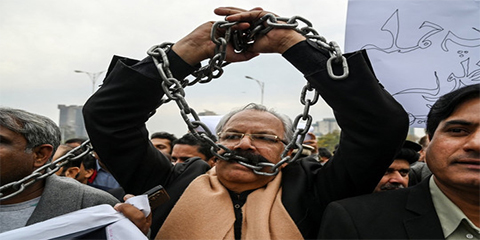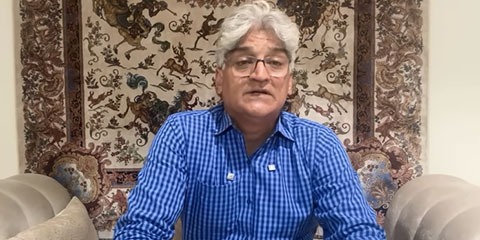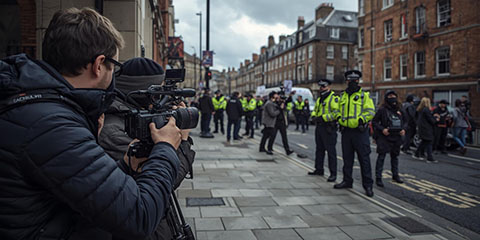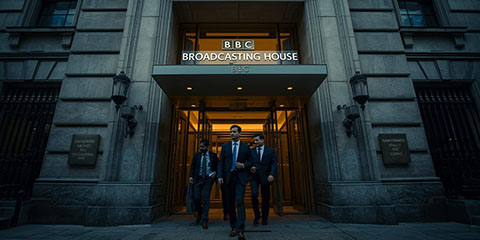PECA amendments further tighten government's grip on digital expression: IFJ
JournalismPakistan.com | Published 10 months ago | IFJ Media Release
Join our WhatsApp channel
ISLAMABAD-The latest draft of changes to Pakistan’s cybercrime law, tabled in the National Assembly on January 23 and passed in just 15 minutes, widens the scope of the Act to further restrict online freedom of expression, enable further regulatory control of content, and grant additional government powers to oversee social media platforms, including expanding the powers previously held by the Pakistan Telecommunications Authority through the establishment of a new Social Media Regulation and Protection Authority.
Among the changes is a new provision, Section 26(A) which penalizes those who disseminate misinformation, disinformation, or any information likely to cause a “sense of fear, panic or disorder or unrest” online, with up to three years of imprisonment or a maximum fine of PKR 2,000,000 (approx. USD 7,150).
Pakistani media stakeholders strongly opposed the government ordinance in a joint statement, with representatives of PFUJ, All Pakistan Newspapers Society (APNS), Council of Pakistan Newspapers Editors (CPNE), Pakistan Broadcasters Association (PBA), and Association of Electronic Media Editors and News Directors (AEMEND) warning that, given the state’s poor track record in safeguarding digital freedom of expression, the proposed bill could become another tool to target journalists, political activists, human rights defenders, and dissenting voices by criminalizing criticism of state institutions.
The organizations expressed concern at the “alarming” Section 26(A), the bill’s unclear definition of ‘fake news’, and ambiguous and excessive penalties for offenses, criticizing the legislation for being introduced without any meaningful consultation or public debate. The formation of four new authorities to oversee digital content regulation was also condemned, with media stakeholders highlighting that this would lead to “disproportionate, multi-layered controls” and create a “chilling effect” on freedom of expression and opinion.
“These provisions grant authorities the ability to block or remove content based on vague criteria, undermining the right to freedom of expression and failing to align with the principles of proportionality and necessity under international human rights law,” said the group.
Concern was also raised at a provision that would see appeals to the newly proposed Social Media Protection Tribunal, composed of government-appointed members, sent directly to the country’s Supreme Court, leading to reduced judicial oversight and increased executive influence.
Since passing in 2016, the PECA has received widespread global criticism from human rights groups for its impact on freedom of expression and access to information, with journalists, activists, and political opponents targeted under the law and the government enforcing frequent shutdowns of online platforms.
PFUJ President, GM Jamali, and General Secretary, Rana Muhammad Azeem, said: “These amendments, passed by parliament without any consultation with stakeholders, make the controversial PECA act even more draconian, which was tailored to silence democratic voices and curb freedom of media in Pakistan. The PFUJ has announced countrywide protests and will stage a grand sit-in in front of the Parliament House in Islamabad on February 14, 2025.”
The IFJ said: “The amendments to Pakistan’s draconian PECA represent a transparent attempt to further tighten control over digital expression and internet freedom under the guise of curbing misinformation. By extending government jurisdiction online, broadening censorship powers, and imposing penalties for vaguely defined offences, this legislation threatens journalists, activists, and the public’s right to information. The IFJ calls on President Asif Ali Zardari to swiftly reject the bill and ensure the constitutional right to freedom of expression is upheld.”
Photo caption: A journalist demonstrates during a protest against amendments to the Prevention of Electronic Crimes Act (PECA) in Islamabad on January 28, 2025. Credit: Aamir Qureshi / AFP

























